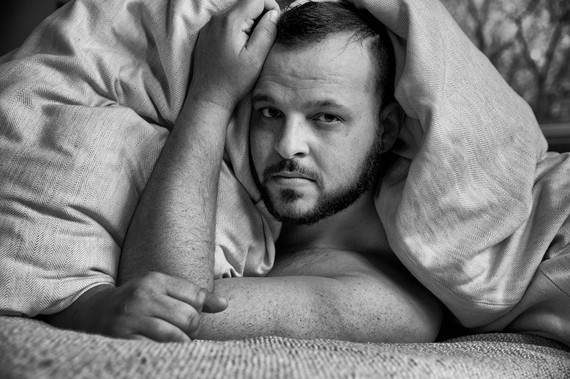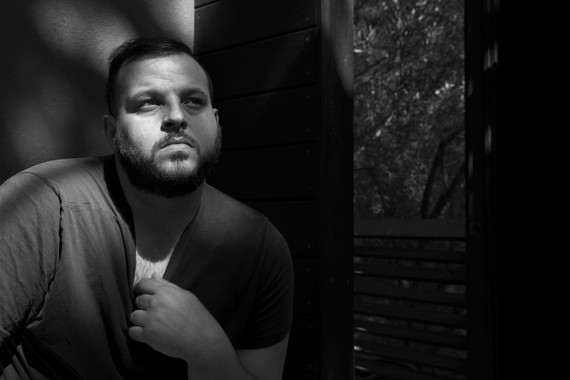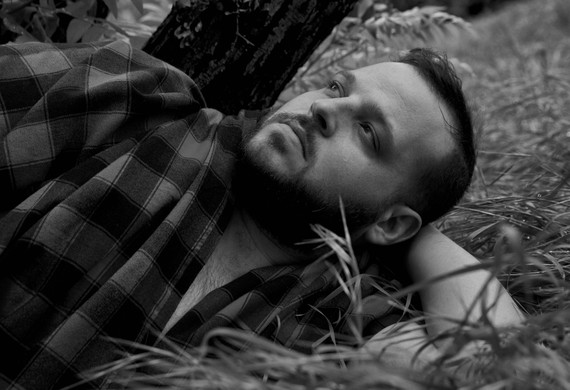Were you as blown away as I was by Rumer Willis on 'Dancing With The Stars'? Yes, she danced with grace and magic. Matched with her charm and appealing personality, I predict she's in it to win it and she will!
Rumer Willis danced away with the highest score (32) on the premiere of Dancing With The Stars with her partner Val Chmerkovskiy, and she earned every point. What a winning start to the season!
'DWTS': Rumer Willis's Winning Performance
Who knew that Demi Moore, 52 and 59-year-old Bruce Willis' daughter, 26, would have such a talent for dance? She looked like a total pro with her lengthy legs and long arms moving swiftly and gracefully around the floor to Hozier's "Take Me To Church."
"Where have you been? That was incredible," judge Carrie Ann Inaba raved. And she was absolutely right. The dance was riveting; passionate. There was even something heartrending about it.
My husband and I were so awed by the performance, we had to rewind the DVR and watch it again.
Rumer's long, flowing, dusty pink, cleavage-baring gown and dark bob accentuated by a dusty pink flower perfectly heightened the romantic mood. Rumer looked like a woman in love, dancing the foxtrot and at one with her man.
"What a vision -- I have chills," judge Julianne Hough, 26 enthused. And I agreed -- I had chills, too. Judge Len Goodman, 70, announced that Rumer and Val's performance was "the dance of the night!" and he was right. The pair tallied the most points -- 32 -- on the season 20 premiere.
Rumer Willis on 'DWTS' -- Sweet And Grateful Towards Her Family
But beyond Rumer's performance, the actress also revealed that she's not just lovely to watch -- she's a young woman who you want to listen to. Yes, she's inherited mom Demi's husky voice and slim figure and dad Bruce's intensity, but she has nothing of the spoiled Hollywood brat about her. Quite the contrary.
While she acknowledged her parents, who were cheering in the audience -- "You probably know me because my parents have been in a couple of movies that you might have seen" -- she was clearly motivated to prove that she's her own woman. "I'm actually very excited to get the opportunity to show people who I really am," she told the judges.
Clips of her practices revealed her perfectionism as she pushed partner Val, 28, to work her harder. I'm "one of five girls so if you break me, there's four other ones," she told him. "There's also a man that dies very hard!"
It was so sweet of her to acknowledge all her younger sisters: Scout, 23 and Tallulah, 21 (who were in the audience clapping), as well as Bruce's younger daughters with his second wife, Emma Hemming, Mabel Ray, 2 and Evelyn, 10 mos.
'Dancing With The Stars'' Rumer Willis: The New Kelly Osbourne
Rumer is the Kelly Osbourne of this season. Osbourne famously competed in season 9 and partnered with Louis Van Amstel, 42. They came in third place -- a terrific achievement. For Osbourne, 30, DWTS was a life-changer. Yes, she dropped a lot of pounds and got into shape. But it was in a much fuller sense -- her butterfly-emerging moment. DWTS allowed her, as the daughter of two larger-than-life personalities -- Ozzie, 66 and Sharon Osbourne, 62 -- to come into her own. She's never looked back.
Now, I predict that DWTS will enable Rumer's loveliness to fully blossom from out under the shadow of her uber-successful parents. While the actress has had roles in The House Bunny, Sorority Row, Pretty Little Liars and 90210, none have done her justice.
But now, she has clearly found the perfect vehicle to become a star on her own. Plenty of DWTS fans agree:
Loved Rumer Willis!!!!!! She has the beauty of her mother mixed with the intensity of her father...good job girl!!!! #DWTS
-- Susan Mallott (@ilvbradpitt) March 17, 2015
Wow! Rumer Willis was stunning! She did such a beautiful job! She is definitely a top contender! #DWTS
-- Jessica Lyn (@j_lyn26) March 17, 2015
I am officially now a fan of Rumer Willis. This girl is in it to win it! #DWTS @DancingABC
-- Amanda Avery (@aavery12) March 17, 2015
Fierce Competition For Rumer Willis on 'DWTS'
There's a shocking amount of strong dance talent in the new DTWS season -- Riker Lynch, 23, Michael Sam, 25, Chris Soules, 33 and Nastia Liukin, 25, all displayed impressive footwork. And then there was a breathtaking cha cha performance by Iraqi war vet and double-amputee Noah Galloway, 33, who proved that, as judge Carrie Ann, 47, said, "was profound, and you're broadening my scope of what dance looks like". All of these competitors will give Rumer a run, or dance, for her money.
Nevertheless, my bet is on Rumer. What about you? Will Rumer win DWTS? Let me know.
Rumer Willis danced away with the highest score (32) on the premiere of Dancing With The Stars with her partner Val Chmerkovskiy, and she earned every point. What a winning start to the season!
'DWTS': Rumer Willis's Winning Performance
Who knew that Demi Moore, 52 and 59-year-old Bruce Willis' daughter, 26, would have such a talent for dance? She looked like a total pro with her lengthy legs and long arms moving swiftly and gracefully around the floor to Hozier's "Take Me To Church."
"Where have you been? That was incredible," judge Carrie Ann Inaba raved. And she was absolutely right. The dance was riveting; passionate. There was even something heartrending about it.
My husband and I were so awed by the performance, we had to rewind the DVR and watch it again.
Rumer's long, flowing, dusty pink, cleavage-baring gown and dark bob accentuated by a dusty pink flower perfectly heightened the romantic mood. Rumer looked like a woman in love, dancing the foxtrot and at one with her man.
"What a vision -- I have chills," judge Julianne Hough, 26 enthused. And I agreed -- I had chills, too. Judge Len Goodman, 70, announced that Rumer and Val's performance was "the dance of the night!" and he was right. The pair tallied the most points -- 32 -- on the season 20 premiere.
Rumer Willis on 'DWTS' -- Sweet And Grateful Towards Her Family
But beyond Rumer's performance, the actress also revealed that she's not just lovely to watch -- she's a young woman who you want to listen to. Yes, she's inherited mom Demi's husky voice and slim figure and dad Bruce's intensity, but she has nothing of the spoiled Hollywood brat about her. Quite the contrary.
While she acknowledged her parents, who were cheering in the audience -- "You probably know me because my parents have been in a couple of movies that you might have seen" -- she was clearly motivated to prove that she's her own woman. "I'm actually very excited to get the opportunity to show people who I really am," she told the judges.
Clips of her practices revealed her perfectionism as she pushed partner Val, 28, to work her harder. I'm "one of five girls so if you break me, there's four other ones," she told him. "There's also a man that dies very hard!"
It was so sweet of her to acknowledge all her younger sisters: Scout, 23 and Tallulah, 21 (who were in the audience clapping), as well as Bruce's younger daughters with his second wife, Emma Hemming, Mabel Ray, 2 and Evelyn, 10 mos.
'Dancing With The Stars'' Rumer Willis: The New Kelly Osbourne
Rumer is the Kelly Osbourne of this season. Osbourne famously competed in season 9 and partnered with Louis Van Amstel, 42. They came in third place -- a terrific achievement. For Osbourne, 30, DWTS was a life-changer. Yes, she dropped a lot of pounds and got into shape. But it was in a much fuller sense -- her butterfly-emerging moment. DWTS allowed her, as the daughter of two larger-than-life personalities -- Ozzie, 66 and Sharon Osbourne, 62 -- to come into her own. She's never looked back.
Now, I predict that DWTS will enable Rumer's loveliness to fully blossom from out under the shadow of her uber-successful parents. While the actress has had roles in The House Bunny, Sorority Row, Pretty Little Liars and 90210, none have done her justice.
But now, she has clearly found the perfect vehicle to become a star on her own. Plenty of DWTS fans agree:
Loved Rumer Willis!!!!!! She has the beauty of her mother mixed with the intensity of her father...good job girl!!!! #DWTS
-- Susan Mallott (@ilvbradpitt) March 17, 2015
Wow! Rumer Willis was stunning! She did such a beautiful job! She is definitely a top contender! #DWTS
-- Jessica Lyn (@j_lyn26) March 17, 2015
I am officially now a fan of Rumer Willis. This girl is in it to win it! #DWTS @DancingABC
-- Amanda Avery (@aavery12) March 17, 2015
Fierce Competition For Rumer Willis on 'DWTS'
There's a shocking amount of strong dance talent in the new DTWS season -- Riker Lynch, 23, Michael Sam, 25, Chris Soules, 33 and Nastia Liukin, 25, all displayed impressive footwork. And then there was a breathtaking cha cha performance by Iraqi war vet and double-amputee Noah Galloway, 33, who proved that, as judge Carrie Ann, 47, said, "was profound, and you're broadening my scope of what dance looks like". All of these competitors will give Rumer a run, or dance, for her money.
Nevertheless, my bet is on Rumer. What about you? Will Rumer win DWTS? Let me know.













